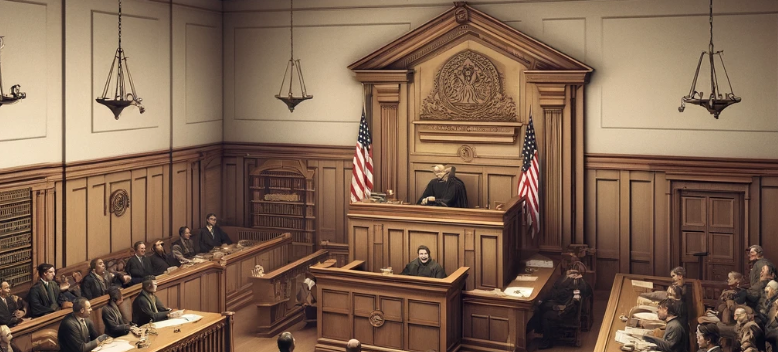| Listen to our audio presentation: Understanding the Global Nuclear Proliferation |
Michael Cohen, once a loyal lieutenant to former President Donald Trump, has found himself in the eye of a legal hurricane. As the prosecution’s key witness in Trump’s hush money trial, Cohen’s testimony has been both compelling and contentious, shedding light on the tangled web of deceit that allegedly protected Trump’s public image ahead of the 2016 presidential election.
For two days, Cohen bore the brunt of direct examination, recounting his efforts to shield Trump from damaging information. He detailed the clandestine settlement with Stormy Daniels, the attempt to influence public perception, and the repercussions that followed. Yet, as the cross-examination loomed, Cohen’s vulnerability became evident.
Uphill Battle with Credibility
Prosecutors confronted Cohen with his previous lies, a move meant to preemptively address the defense’s attacks on his credibility. Cohen, previously guilty of tax fraud and false bank statements, claimed these actions were missteps for which he has already paid a heavy price, including time in solitary confinement—a punishment he alleges was orchestrated by Trump.
“I have constantly maintained that I do not dispute the fact that there was an error in the taxable amount and the tax that was due,” Cohen explained, defending his earlier statements that seemed to downplay his guilty pleas. He argued that as a first-time offender who consistently paid his dues, the harsh penalties he faced were unwarranted.
During the trial, Cohen was visibly a different man from the combative fixer who once manipulated challenges for Trump. He appeared contrite, remorseful, and at times frail. His emotions were palpable as he recounted how his admiration for Trump turned into a moral quandary, causing him immense personal and professional harm.
Complicated Relationship
Cohen’s relationship with Trump was emblematic of unbalanced power dynamics; he went to great lengths to please his boss, expecting loyalty and reward in return. However, his anger and sense of betrayal boiled over when Trump shortchanged him on a promised bonus after he had paid Daniels out of his own pocket to cover up the affair.
Prosecutors laid out Cohen’s criminal activities as sacrifices made to protect Trump, while the defense, spearheaded by Trump’s new lawyer Todd Blanche, painted Cohen as a man seeking vengeance. Blanche emphasized Cohen’s history of lying, asserting that his motivations were driven by personal vendetta rather than an allegiance to truth.
Mixed Reactions and Testimonies
Other witnesses, including former Trump associates and employees, had diverse perspectives on Cohen. David Pecker, former publisher of the National Enquirer, and Keith Davidson, Daniels’ former attorney, depicted Cohen as an aggressive manipulator. Meanwhile, Hope Hicks and Jeffrey S. McConney, former Trump Organization employees, questioned Cohen’s professional conduct and mocked his self-professed legal abilities.
Defense’s cross-examination drew stark contrasts. Blanche highlighted Cohen’s public statements and actions—such as selling Trump-related merchandise and running a podcast disparaging the former president—as proof of personal bias. However, Cohen held his ground, repeating that his actions were initially in service of Trump’s directives, even when they involved deceit.
Damning Admissions and Strategic Moves
The trial’s revelations extend beyond Cohen. Hope Hicks’ testimony challenged Trump’s ignorance of the hush money payments, stating that “Mr. Trump’s opinion was that it was better to be dealing with it now and it would’ve been bad to have that story come out before the election.”
As the trial progresses, Cohen’s remorseful demeanor and efforts to shed light on Trump’s inner workings have resonated with some jurors. Yet, the defense’s portrayal of Cohen as a self-serving provocateur cannot be ignored. How these opposing narratives will influence the trial’s outcome remains to be seen.
Key Facts:
- Michael Cohen: Former lawyer and fixer for Donald Trump, known for his aggressive tactics to protect Trump.
- Stormy Daniels Affair: Cohen involved in paying $130,000 in hush money to adult film actress Stormy Daniels to keep an alleged affair out of the press before the 2016 election.
- Charges: Donald Trump faces 34 felony charges for falsifying business records to cover up the hush money payments.
- Trial Setting: Takes place in New York, with prosecutors aggressively addressing Cohen’s credibility issues.
Background on the Case:
- Initial Charges: Cohen was previously convicted of tax fraud and lying to Congress, implicating Trump in campaign finance violations.
- Payments to Daniels: Prosecutors argue these payments were misrepresented as legal expenses to conceal their true purpose.
- Legal Consequences: Trump denies all charges and relationships with Daniels and Karen McDougal, another woman alleging an affair.
Key Figures:
– Donald Trump: Charged with 34 felonies related to falsifying business records.
– Michael Cohen: Former Trump attorney and fixer, now a key witness for the prosecution.
– Todd Blanche: Trump’s defense attorney, focusing on discrediting Cohen.
– David Pecker: Former publisher of the National Enquirer, witness to Cohen’s efforts to cover up scandals.
– Keith Davidson: Former attorney for Stormy Daniels, testified to his contentious interactions with Cohen.
– Hope Hicks: Former Trump communications director, testified under subpoena.
References:
Reference 1: Slate – Jeremy Stahl, “Why the Trump Hush Money Trial Prosecutors Are Leaning Into Michael Cohen’s Scumbag Reputation,” May 14, 2024.
Reference 2: NPR – Ximena Bustillo, “The Cross Examination of Michael Cohen, Trump’s Ex-Fixer, Has Begun in New York Trial,” May 14, 2024.
Reference 3: New Republic – “Michael Cohen Says He Lied for Trump … and That’s Not the Worst of It,” May 14, 2024.

